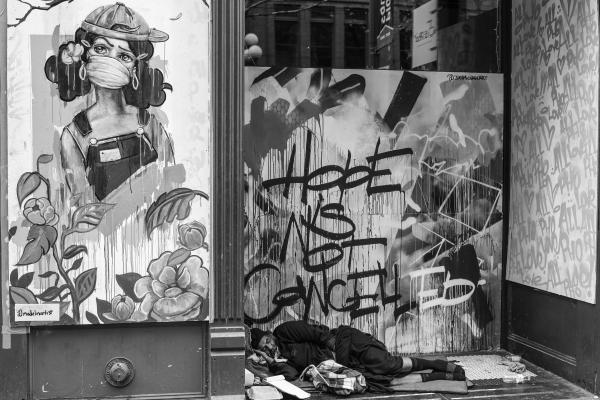THE POLITICS AND INTERSECTIONS OF COVID-19: Online Talk Series

Critical Perspectives from Gender Studies
Online Talk Series – 23.09.2020 and 28.10.2020 (09:00-17:00)
The current global pandemic has brought with it many challenges. Most obviously, the costs are seen in the lives lost and the health, emotional, social, and economic challenges that many people face around the globe due to the pandemic. While some also point to positive side effects of COVID-19 such as stark reductions in CO2-emissions, the pandemic is more likely to intensify already existing (social) inequalities than to alleviate them. This is most noticeable when it comes to health. Older people and people with pre-existing conditions are more likely to die from the virus. At the same time, according to public statistics men fall victim to COVID-19 more often than women.
What is more, as more knowledge emerges about those infected with and dying from COVID-19, well-known intersections of gender, class, and race appear to determine who will survive this pandemic and who won’t. Socially, the pandemic also acerbates existing inequalities. In professions heavily exposed to infection risks, such as healthcare or daycare workers or teachers, employees are overwhelmingly women. In professions hardest hit economically, people in the lower income ranges feel the consequences by getting laid off and losing their income. This is paired with racial discrimination. After the American president called Corona “the Chinese virus”, people identified as Chinese by others experienced an increase in racial discrimination in public in the US and Europe. At the same time, prejudices against racial minorities also gained traction in China where Black Africans, after reports of them supposedly bringing Corona-infections back to China, were discriminated against because of their skin color.
Not least, the current pandemic also points to the violent heritage of colonialism, empire, and capitalism, with countries in the Global North paying themselves out of the direst consequences while at the same time being unwilling to share the financial burden of countries from the Global South. All this begs the question how social inequalities structure the current crisis and how the crisis will come to shape social inequalities in the future. In two one-day events, the Centre for Gender Studies will tackle these questions.
See the right hand column for the program and please register via e-mail in order to attend the event: luca.tainio@kau.se
--------------------------------------------------------------
You can learn more about the online talk series on the designated webpage!
